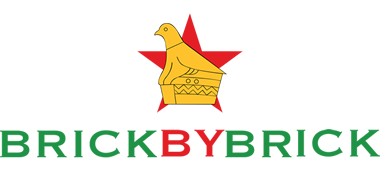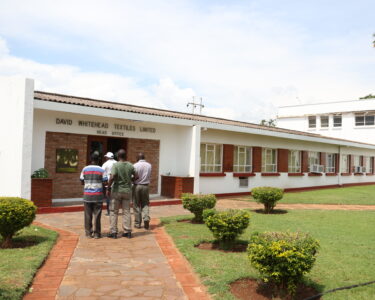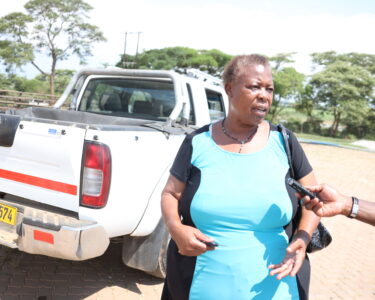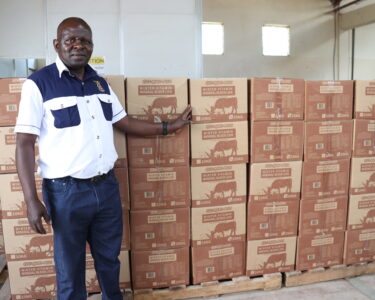At Kilometre 27 on the Harare-Chinhoyi Road is the Gwebi College of Agriculture, “the first fully residential institution of higher education in Southern Rhodesia” (now Zimbabwe). Over the years, the College suffered neglect, but thanks to the Second Republic, Gwebi College is back and able to contribute its quota to national development and the glory of the Mashonaland West Province. Baffour Ankomah reports.
Founded in 1950 by the colonial government to train ex-servicemen, the Gwebi College of Agriculture saw its candle slowly extinguishing over the years to the point where its buildings became dilapidated, its machinery obsolete, and the general atmosphere at this prime agricultural institute becoming despondent.
“Truly speaking, things went down,” the principal of the college, Mrs Shupikai Sibanda, told the Brick by Brick when its editors visited the college on 29 November 2022 as part of their tour of the “Mash Best” province to gauge what has been achieved under the Second Republic.
From the potholed road that passes as the main entrance to the College from the Harare-Chinhoyi highway (27 km peg), one can tell that the institute has truly gone through rough times.
“But the Second Republic has come in a massive way to revamp the College,” Mrs Sibanda said, “and the revamping has actually enhanced our training, especially training our cadres so that when they graduate they are fully equipped and have the confidence to perform anywhere they go.
“It is unlike under the previous dispensation where we were training students who would only see a tractor or a plough disc when they went on attachment. But things have changed for the better, and as a government institution we really appreciate the support that we have received from the Second Republic.”
Gwebi College has an illustrious history. It started as Gwebi Farm established by the colonial government in the early 20th century as an experimental station. After the Second World War, Gwebi Farm became the home of agricultural courses for ex-soldiers who were taught how to plough, herd, and milk. One of its famous students was Ian Douglas Smith, the future prime minister of Rhodesia, who attended courses at Gwebi in 1947-1948.
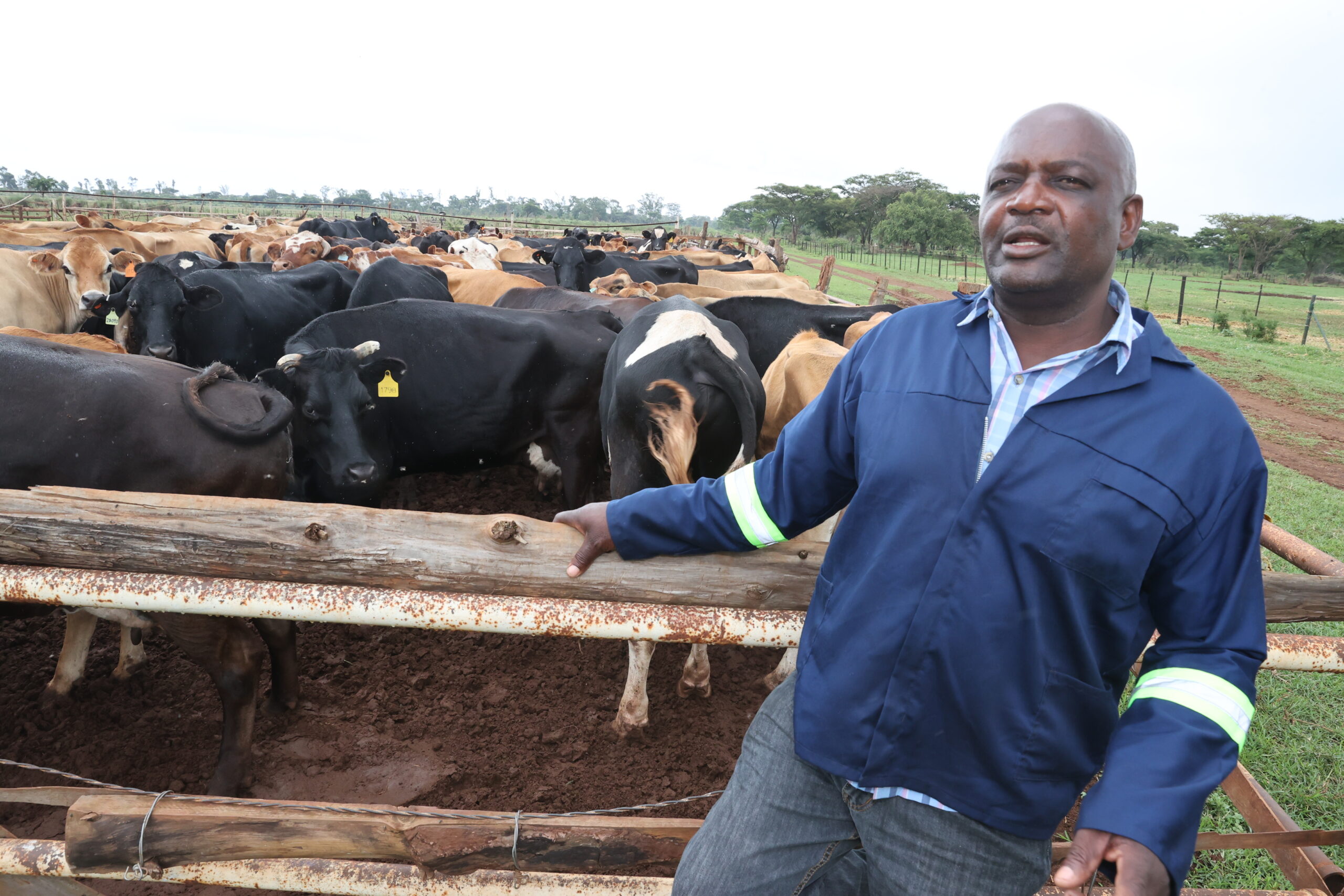
have been bothering my boss big time, saying ‘let’s be at Gwebi for as long as we can”
In 1949, W. L. Fielding arrived from Britain, tasked by the Southern Rhodesian government to turn Gwebi into an agricultural college. Eventually, in February 1950, Gwebi College of Agriculture formally opened its doors to its first intake of 49 students. It would offer two-year diploma courses to ex-soldiers, many of whom had missed out on higher education during the war.
“The first fully residential institution of higher education in Southern Rhodesia, Gwebi College soon had a significant waiting list,” writes one historian. “The students were 18- and 19-year-old white men, mostly from the colonies of Southern Rhodesia (now Zimbabwe), Northern Rhodesia (now Zambia) and Nyasaland (now Malawi) with a few students from the United Kingdom who sought to take up farming in the Federation.
“Unlike Southern Rhodesia’s agricultural school for blacks, Chibero College, where students took three-year courses, Gwebi offered two-year diploma courses, because the students generally had some experience in agriculture. By the late 1970s, Gwebi College had graduated more than 1,000 students,” the historian adds.
Modern times
Today, Gwebi College still has a noble mission: “To effectively and efficiently produce professionally and technically sound and versatile agricultural graduates capable of farming commercially and delivering agricultural services in agri-business, research and extension.”
Now affiliated with the University of Zimbabwe, Gwebi College offers two-year courses in higher national diploma in agricultural engineering, and higher national diploma in horticulture. Students do a sandwich attachment course, making it three years.
The current principal, Mrs Shupikai Sibanda, is an alumnus of the College (one of the first batch of females to enter the college in 1989). She is happy that the Second Republic has brought in Education 5.0 which has changed the curriculum of the institute.
“The Second Republic has actually emphasised on students being entrepreneurial and that’ is why the curriculum has changed,” Mrs Sibanda told Brick by Brick. “Education 5.0 is all encompassing, so now the kind of cadre we want is one who is not going to look for a job, but one who will create more jobs.”
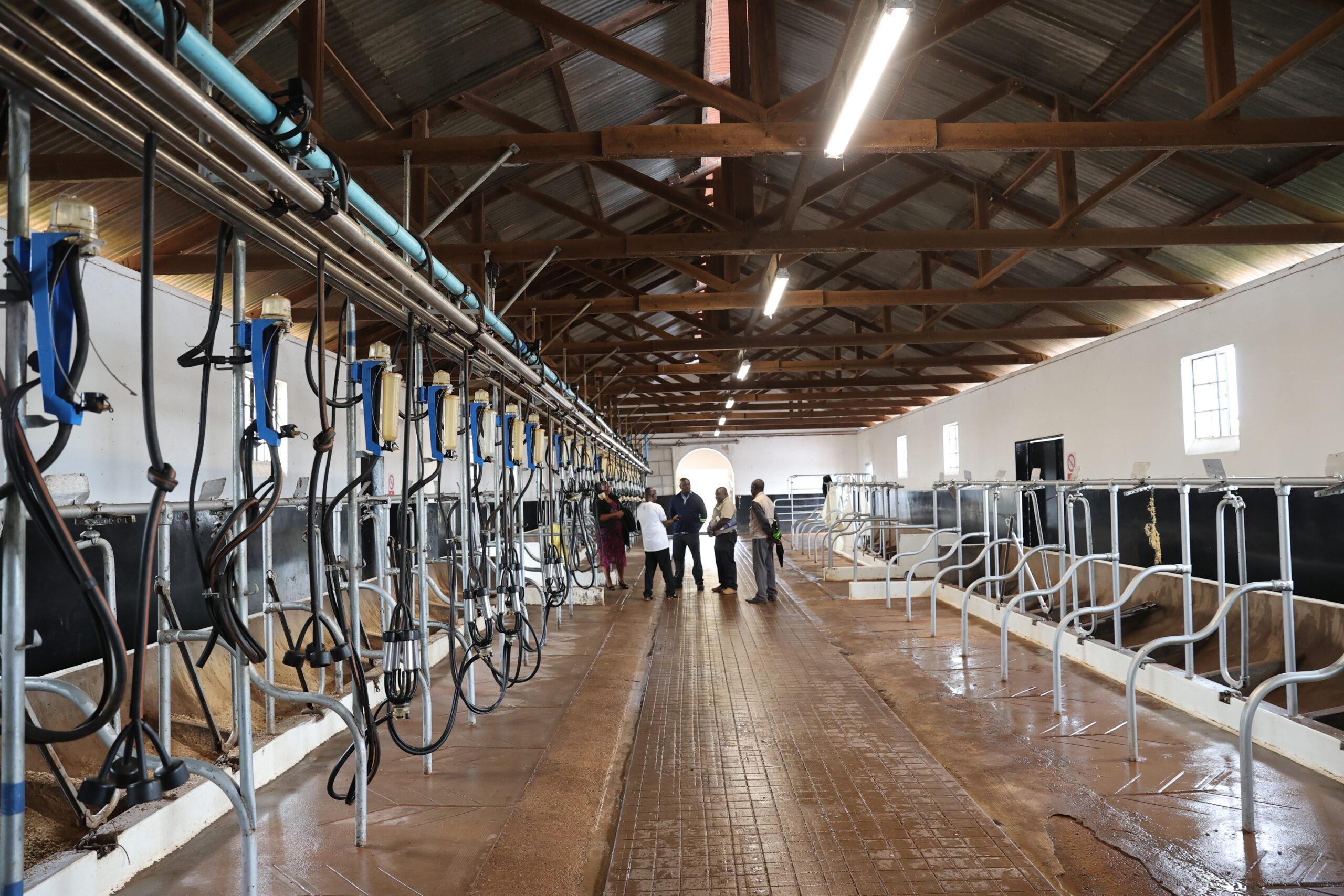
Mrs Sibanda has been principal for two years, but she clearly remembers the first 34 years of the College when it only admitted male ex-detainees who were trained for 2 years in various disciplines of agriculture until 1989 when the first group of female students were admitted.
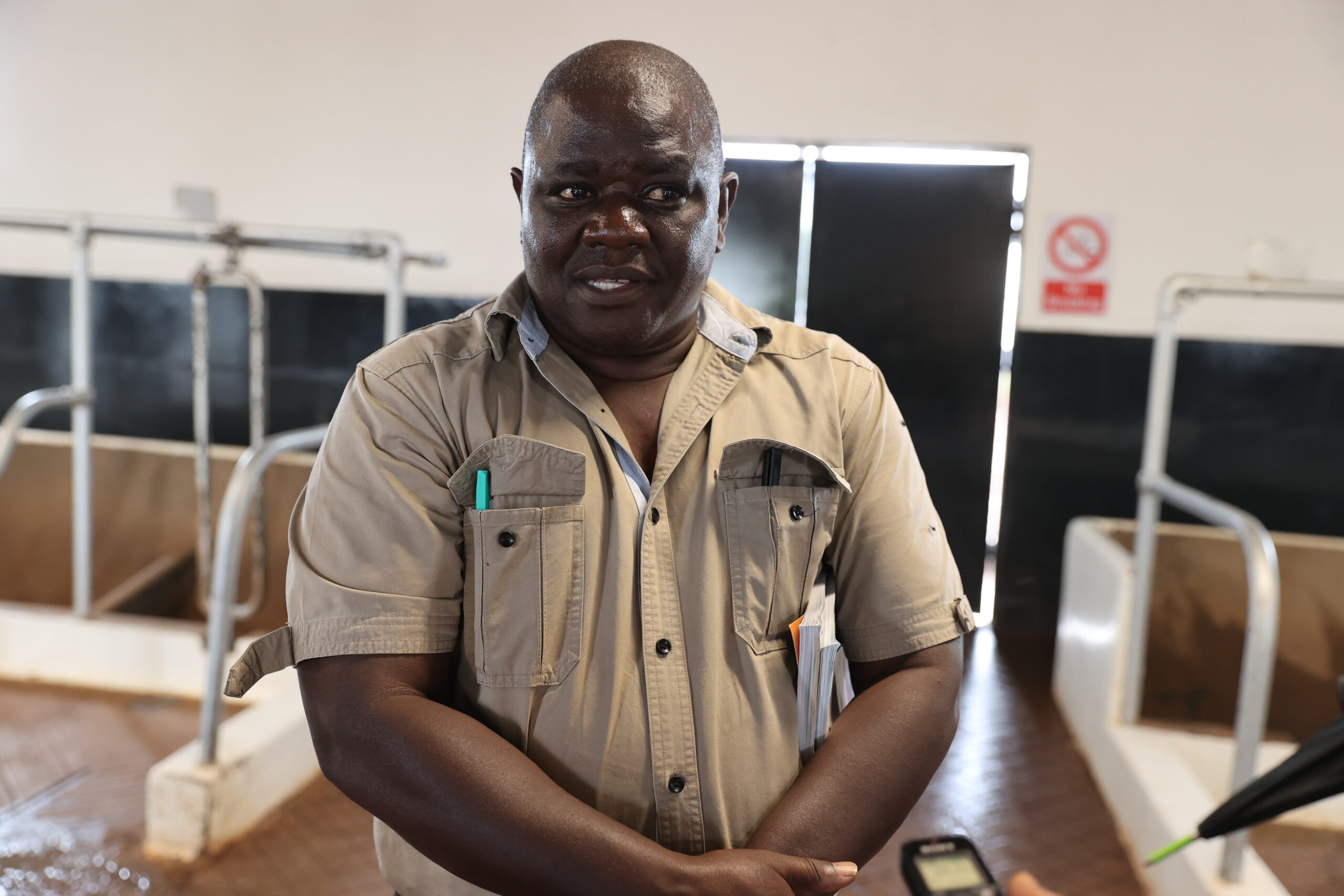
happy working with Gwebi College. ‘Because of the cordial relations we have
here, there is no push really to move out’, he says
“I was fortunate to have been one of that first female group to train here”, Mrs Sibanda told Brick by Brick. “But now things have changed. We recruit students from high school and men and women up to age 45. The duration of the courses has also gone up from 2 years to 3 years.”
The college has a capacity of 120 students, but it currently has 106 because the last 2 years of Covid-19 prevented it from admitting new students. Therefore, currently there is no final year intake, after the last final year students graduated in October 2022.
Zimplats to the rescue
Thus, after witnessing its buildings and campus slowly go down, Gwebi College saw a saviour in the shape of the mining giant, Zimplats, descend on campus with a corporate social responsibility (CSR) programme to help revamp the College’s dairy project. As part of Education 5.0, Gwebi had chosen dairy as its niche, but its antiquated milking parlour had only 4 points.
Zimplats’ aptly named “Community Empowerment Programme – Creating a better future for all our stakeholders”, brought in a 12-point milking machine to take Gwebi’s tally to 16. It also installed a 5,000-litre milk tank and a resting shed for cows to reduce heat stress and improve feeding and drinking.
Zimplats also constructed a post-milking holding pen for 300 cows, feeding and holding sheds, expanded a calf shed to accommodate 100 calves, built a changehouse for employees complete with sanitary fittings, septic tank and soakaway; provided fencing, and drilled 2 boreholes. To complete it all, Zimplats donated a 65Kva generator to cover the debilitating electricity cuts in the area. In all, Zimplats invested over US$500,000 in the programme.
Vice President Constantino Chiwenga commissioned the works on 21 April 2022, at which the private company, Palmline Investments, donated 20 Holstein in-calf cows to Gwebi to boost its dairy herd. Before the donation, Gwebi College had only 13 cows.
Zimplants philanthropy at Gwebi College was coming at the back of a joint venture agreement with Palmline Investments to invest in cattle ranching and a dairy project that was officially launched by President Mnangagwa in Ngezi on 26 August 2021. Part of that deal was a commitment by Zimplats to establish a milking parlour as part of the project.
Alex Mhembere, Zimplats’ CEO, told the media at the commissioning of the Gwebi milking parlour on 21 August 2022 that Zimplats came to the aid of Gwebi because until the Palmline Investments milking parlour was fully established, there was a need to provide temporary milking facilities for the dairy cows. Hence Gwebi College benefitted from Zimplat’s largesse.
“The whole of Mashonaland West province and Zimbabwe will benefit from this partnership between Zimplats and Gwebi Agricultural College, through skills development,” VP Chiwenga said when commissioning the milking parlour project.
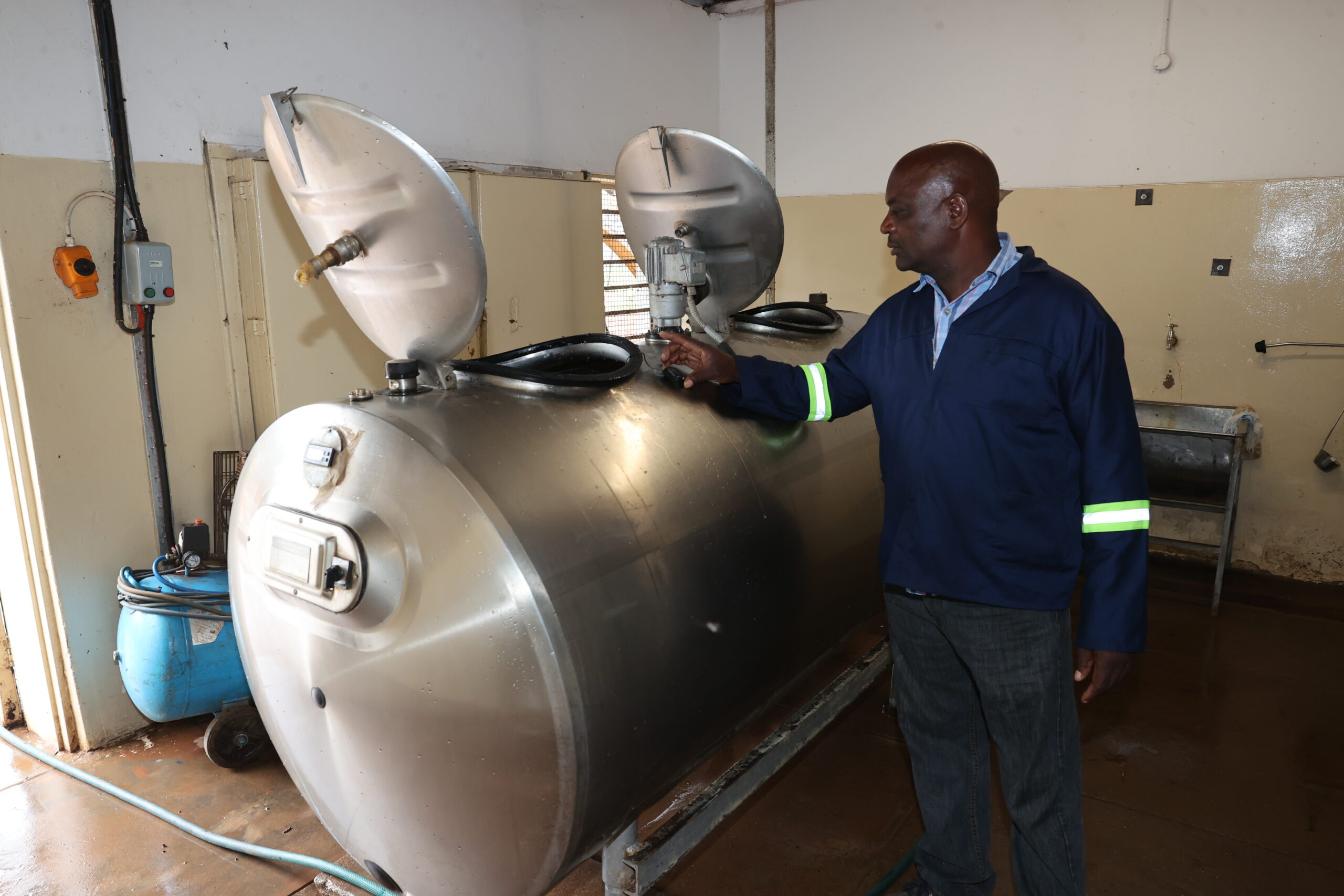
“The objective is to augment the country’s commercial beef and dairy herd, increase milk and beef production, enhance technology and skills transfer, expand revenue generation streams, and positively impact community livelihoods, while demonstrating positive synergies between mining and agriculture sectors,” the Vice President added.
Gwebi-Palmline partnership
After Zimplats had done its bit, Gwebi College entered into a public-private-partnership (PPP) agreement with Palmline Investments to develop its dairy project. “We said on our own, as Gwebi, we are not able to accomplish this project, but we want someone who can lift us up to a stage where we can stand on our own,” Mrs Sibanda explained to Brick by Brick. “So we roped in Palmline. This is one aspect that the Second Republic has also emphasised – that we should have PPPs. That’s what we did. We are actually doing it with Palmline.
“So when Palmline came, they brought in a special beef breed from China which they want to multiply here but using dairy animals. So they are inseminating our dairy animals with the Chinese breed.
“As we speak, we’ve got a total herd of 341 animals at the farm, out of which 28 belongs to us as Gwebi College and the rest belongs to Palmline. Our agreement says that once they are using our infrastructure, they have to give us something back, and they gave us 20 dairy heifers. Some of the 20 animals have since given birth, so now we have 28.”
Mrs Sibanda is happy that Palmline has since used its own money to massively revamp the College’s dairy infrastructure, including increasing the milking point from 16 to 24, establishing a 30-hectare pasture for the cattle, and working with Gwebi students and equipping them with the knowledge of pasture production, keeping animals, feeding them, and milking them.
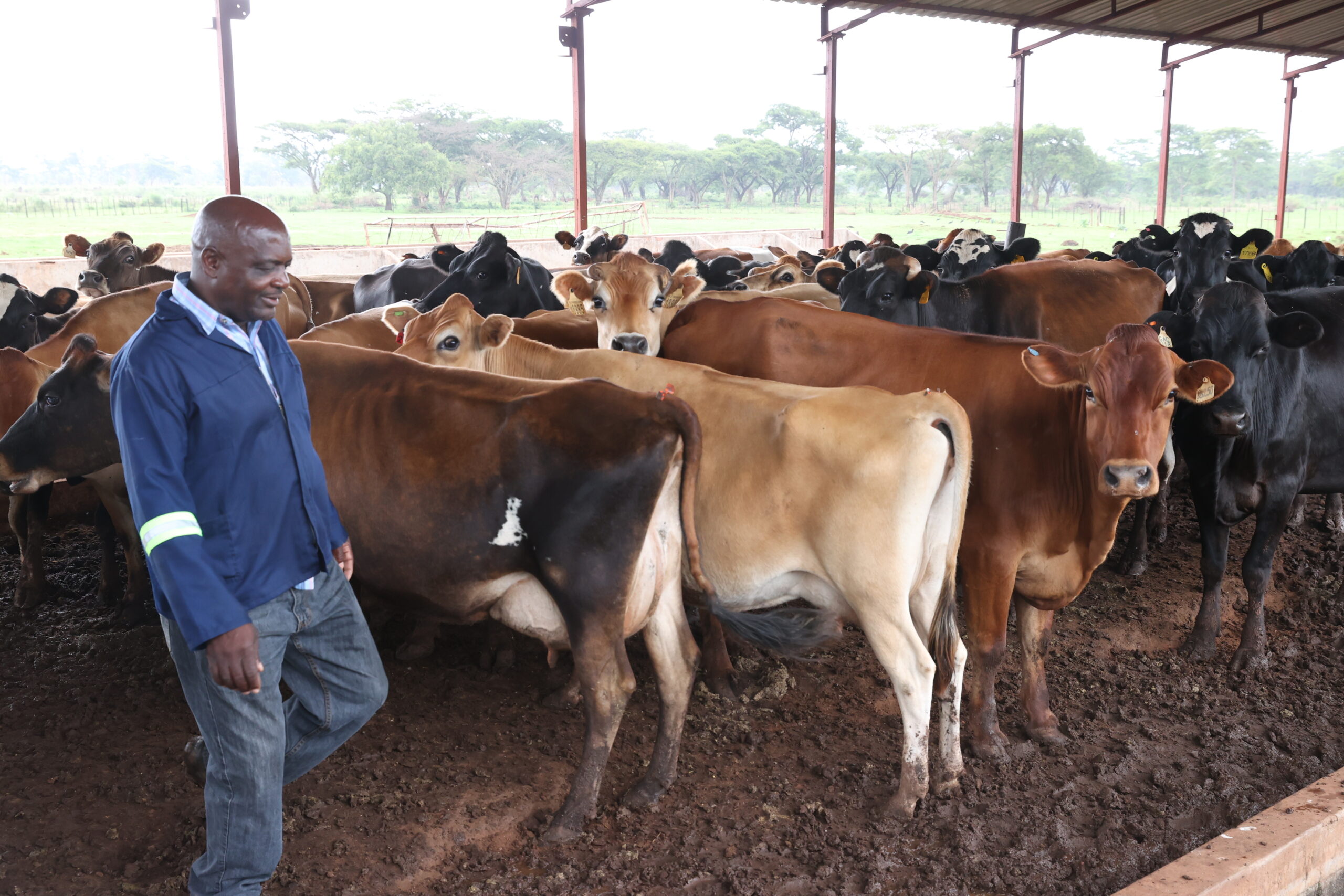
“So by the time Palmline goes, we will be self-reliant and self-sufficient. So we are happy and our students are also happy – they are learning and being exposed to what we think is best for them,” Mrs Sibanda said.
Palmline’s future
The agreement with Palmline makes it possible for the company to one day pack bag and baggage and leave Gwebi College. “What we have done,” Mrs Sibanda explained, “is to make the agreement renewable on a yearly basis because they are building their own parlour in Ngezi. So while they are building there, we will continue to accommodate them here until they are done at Ngezi and then they can move. So we are making the best out of this PPP agreement before they move away.”
Palmline’s general manager, Daniel Mukozho, confirmed what Mrs Sibanda had told Brick by Brick, and said they were also very happy to have been accommodated by Gwebi College to keep their dairy herd there.
“We have worked very well together from the beginning in expanding Gwebi’s milking parlour and also making improvements to the paddocks for the animals,” Mukozho said. “Our major purpose is to make this project impact the students of the College so that they become abattoir farmers, mainly in the area of dairy.”
He confirmed that someday Palmline might leave Gwebi College and go to Ngezi, but because of the good relations that exist between the College and Palmline, the company may end up not leaving Gwebi totally.
“We have found a piece of land at Selous in Ngezi which has been approved by the Minister of Lands, and we are just at the final stages of getting every approval – meaning from the local government,” Mukozho explained.
“But what we are thinking as management is that we wouldn’t want to vacate Gwebi 100%. We have no problem utilising the facility here. We would rather wait for Gwebi to tell us to just go probably when the number of their animals have increased and they feel they want their facility back.
“Otherwise, because of the cordial relations we have here, there is no push really to move out. The Selous site is going to get a new herd of animals. We are actually importing 800 heifers which are in calf. Gwebi is not the only farm where we’ve got our dairy herd, we also have a herd in Bromley which are even bigger than these ones here.
“So with the good relations that we have here and also the mutual benefit that we are getting, we may move the Bromley animals first to Selous, buy the 800 heifers from abroad, and let them join the Bromely head in Selous, while our Gwebi College contract still goes on. We are not in a hurry to move from Gwebi. So it’s not definite that we will go,” Mukozho said, bringing an air of assurance to proceedings in Gwebi.
A happy manager
Maxwell Sunhwa, Palmline’s diary manager, is equally happy with the Gwebi partnership. “I have been bothering my boss big time, saying “let’s be at Gwebi for as long as we can”. I mean there are no noises at Gwebi College. If I have issues, I present them to my boss, I present them to Mr Stanford Katonha [chairman of Gwebi’s partnerships]. I am one person who goes to Mrs Sibanda’s office without appointment even in my gumboots. I phone her any time of day without problem,” Sunhwa said.
Expatiating on why they are so happy at Gwebi, Sunhwa said: “We get a lot of help from Gwebi College, especially in the mornings with milking because every day they have students who come into the parlour to help in the milking. We train them on dairy aspects, from calf rearing to the operation of the parlour.
“In the afternoon, the College also give us some manpower in the form of students for dehorning, castration, and offloading feed. The students help us in a very big way. That is very helpful in reducing our labour cost.”
Sunhwa said of the 341 animals they have on campus, they milk 92 at present. Each cow gives an average of 14 litres of milk per day. They are hoping to improve their yield with an addition of 42 more fresh cows coming into the parlour to increase the number to 134.
“We also give Gwebi College milk requirement for their students. We give them 160 litres of milk every day,” Sunhwa disclosed. “We are hoping that we can increase the ration when our milk production increases. The community around here also benefits from Gwebi College because it does not use all the 160 litres per day. It sells the remainder to the local community.”
Mrs Sibanda had earlier told Brick by Brick: “We are privileged in this province of Mash Best. We are contributing to overcome the milk deficit in the country. Every day on average, we are producing about 1,000 litres of milk which we sell to the Dairy Board, whose trucks come here every other day to collect milk. This morning they came to collect 3,000 litres of milk. Early next year (2023), we hope to get the best milk yields per cow per day. We should go up to 30 kg per cow.”
The College is also training farmers. Twenty of them who came from Ngezi recently graduated. “They came here, they saw what we are doing, we trained them in crop production, and they also benefitted from the dairy project,” Mrs Sibanda said.
While commissioning the Zimplats projects at Gwebi College in April 2022, Vice President Chiwenga said: “Gwebi Agricultural College will empower local communities on better management of herd health and training on the concept of rearing rural cattle for commercial purposes … The whole of Mashonaland West Province and Zimbabwe will benefit from this partnership between Zimplats and Gwebi Agricultural College, through skills development.”
It has come to pass.

